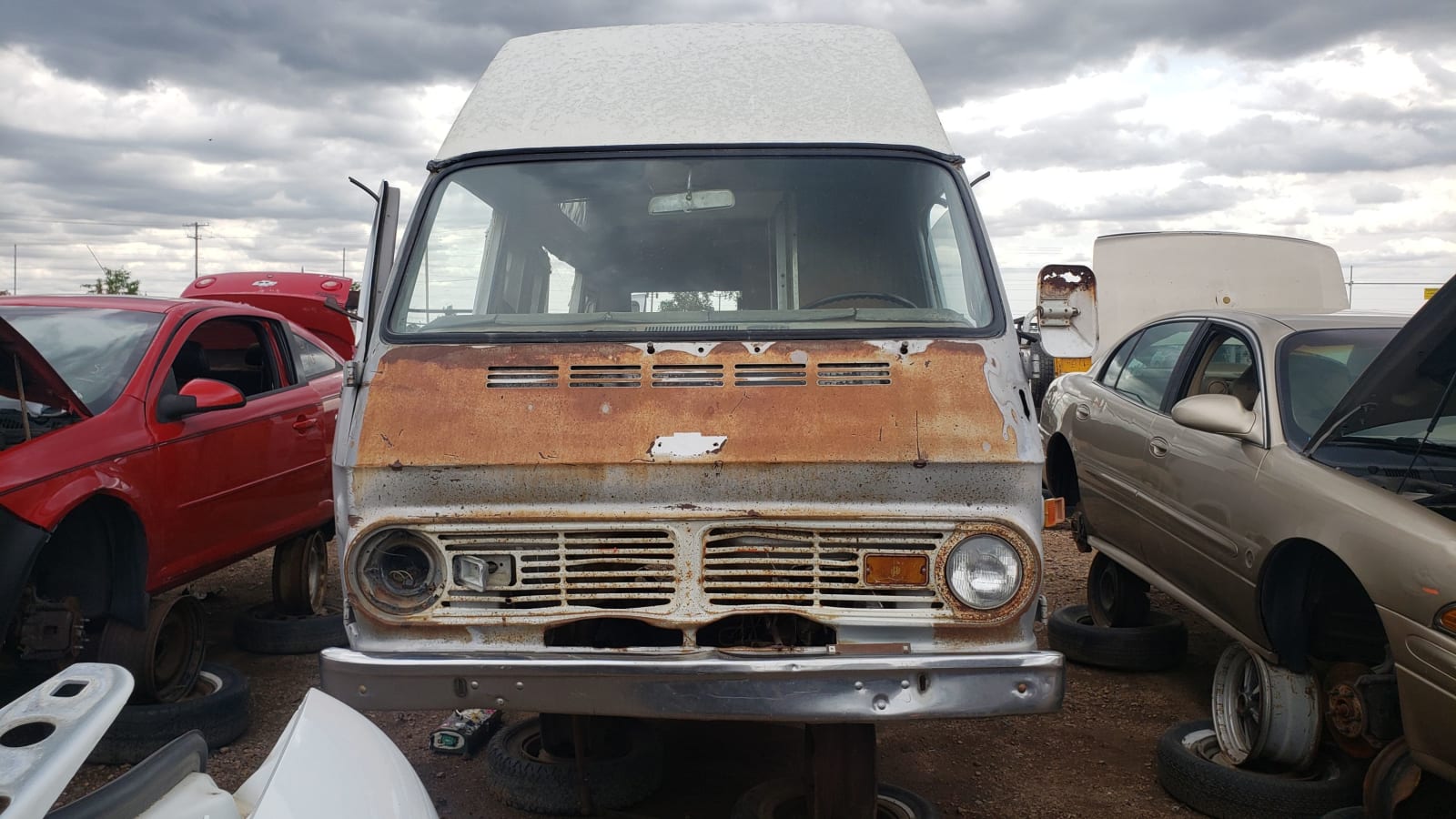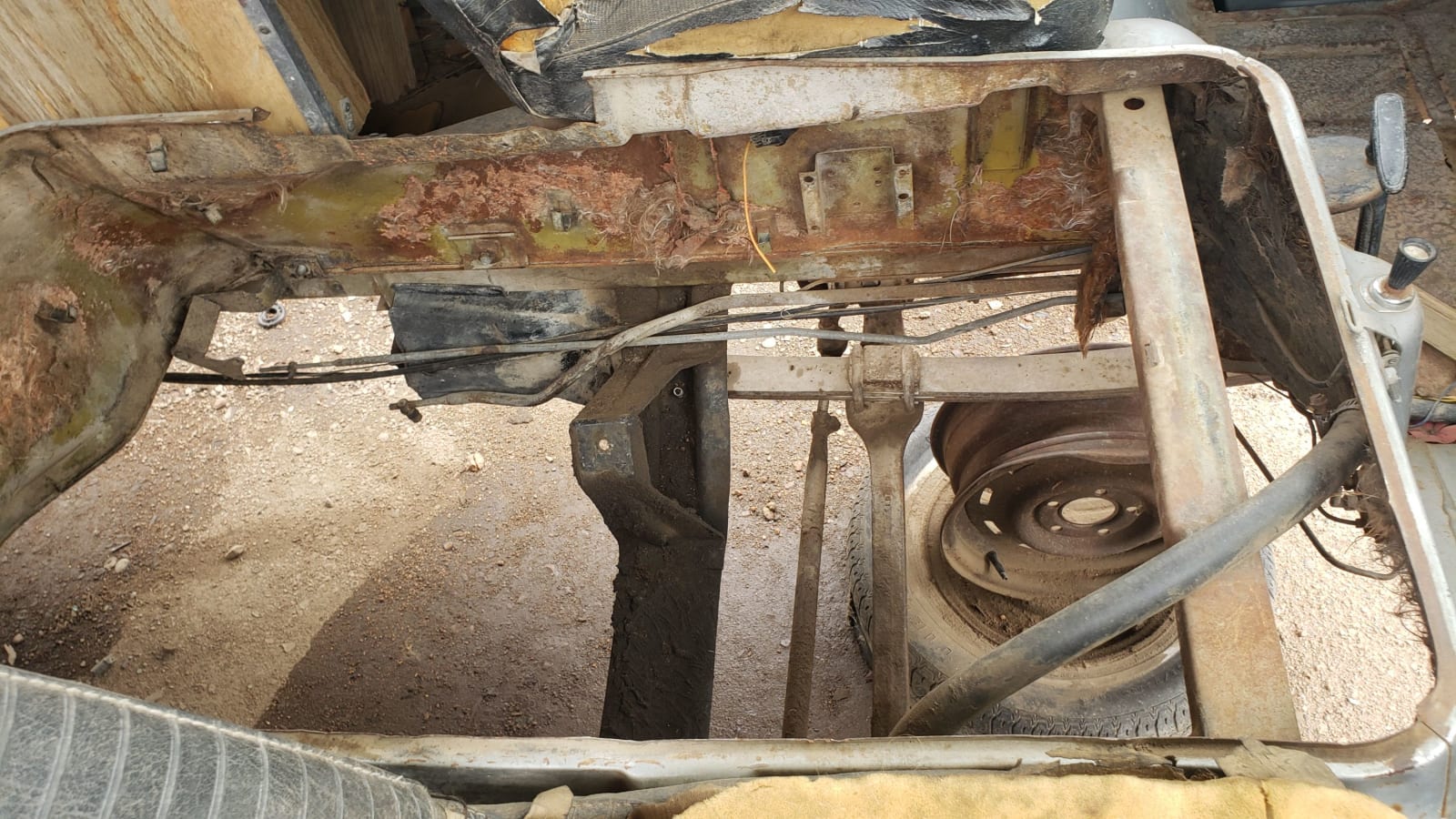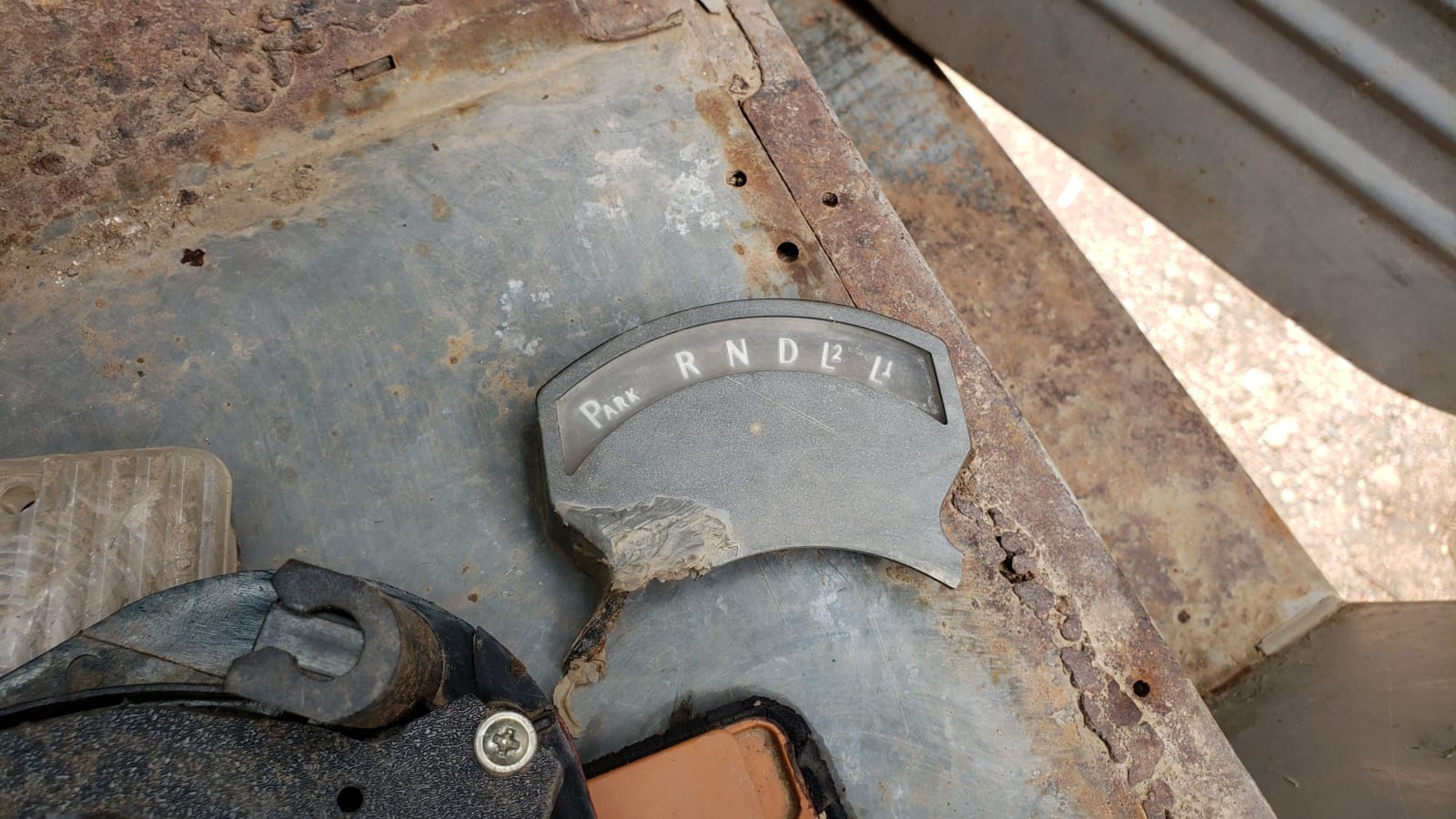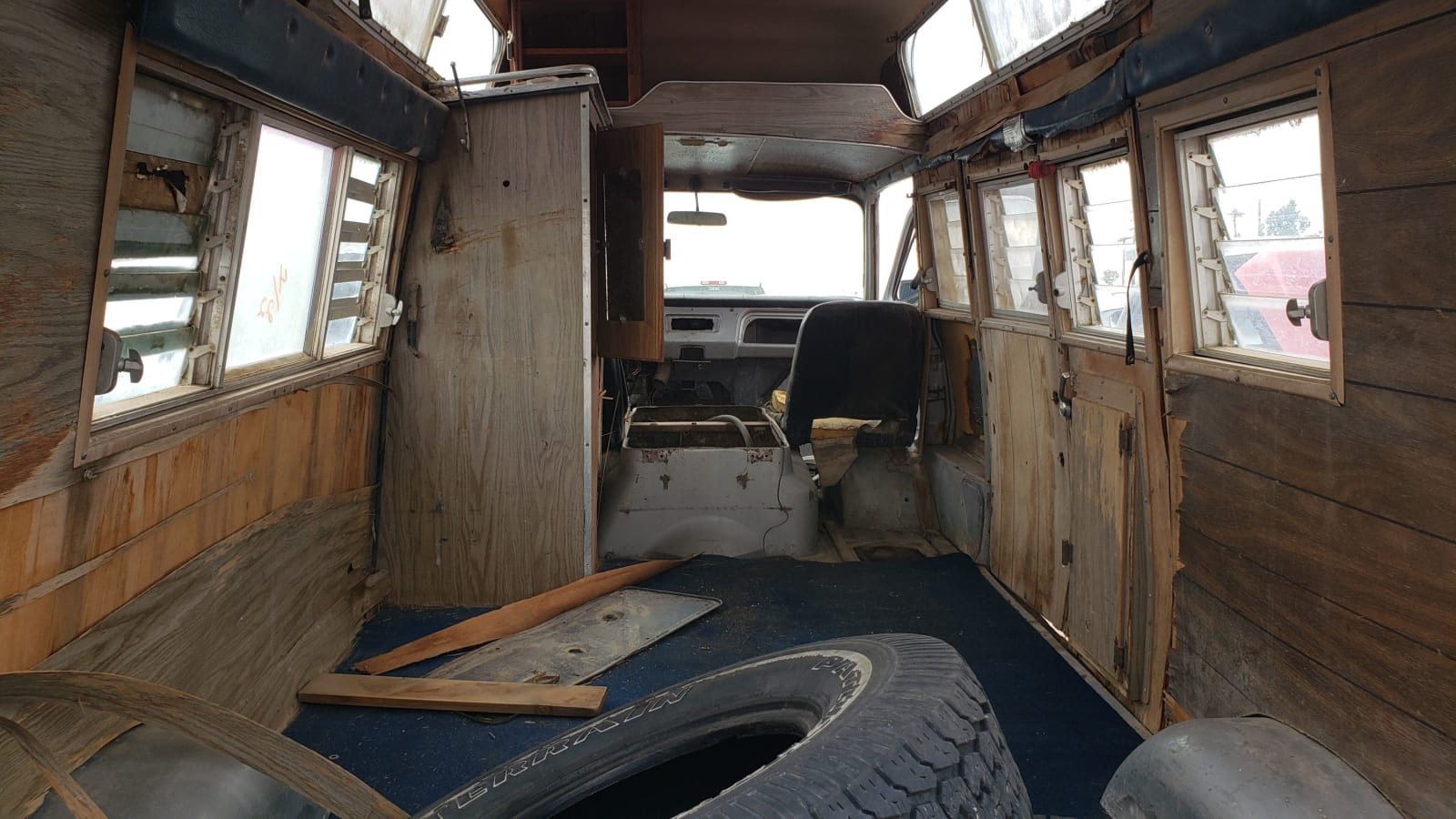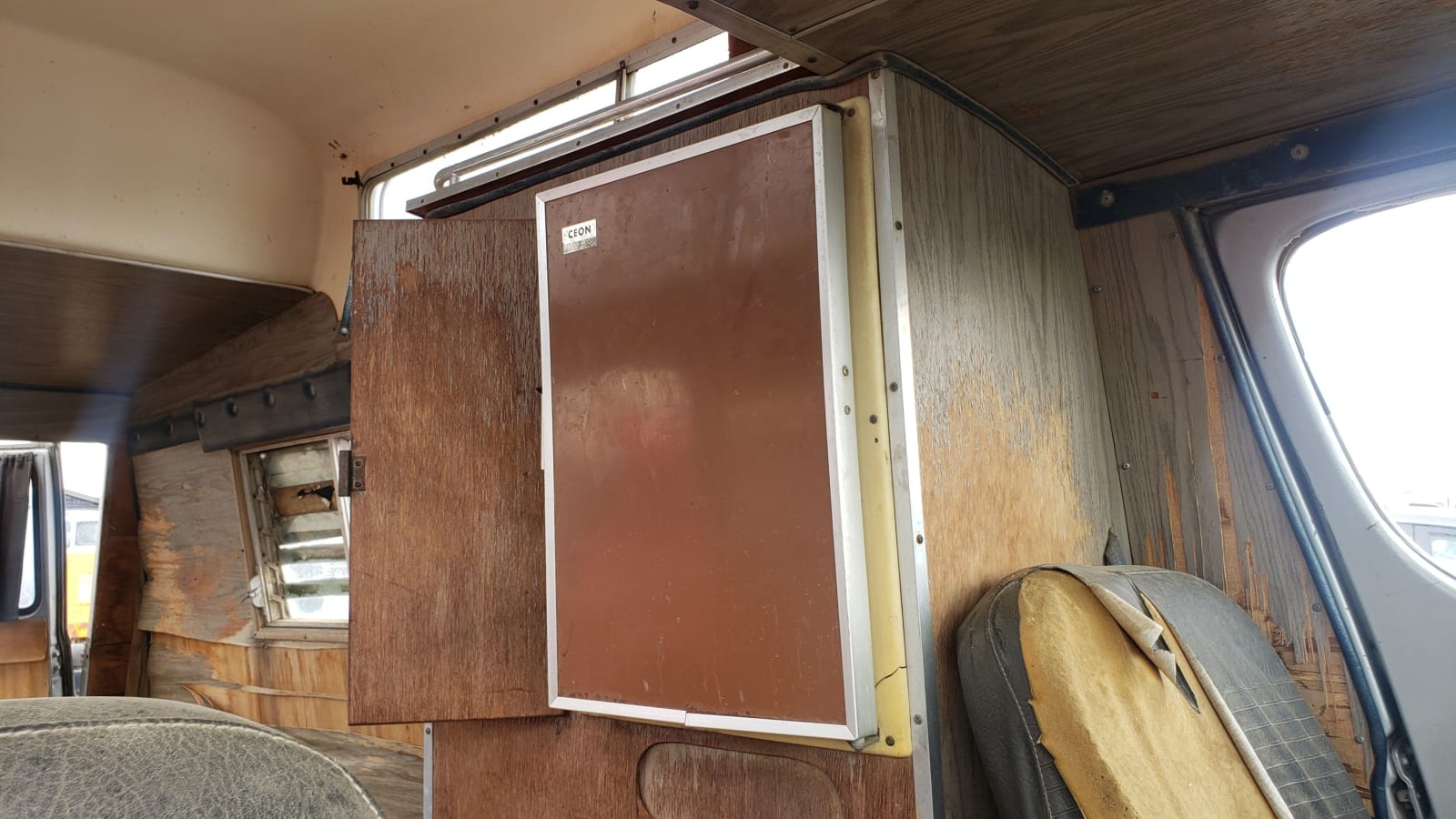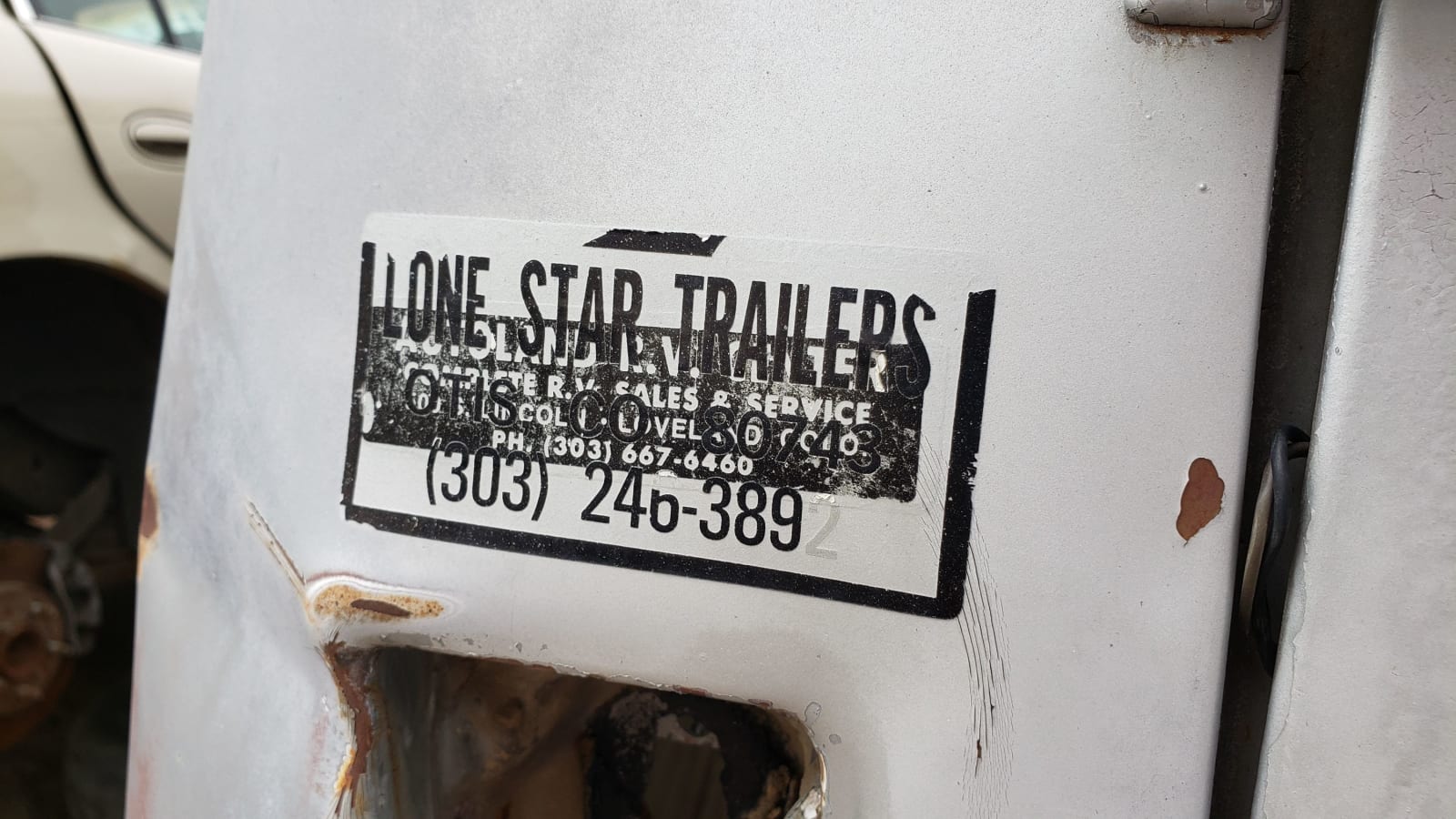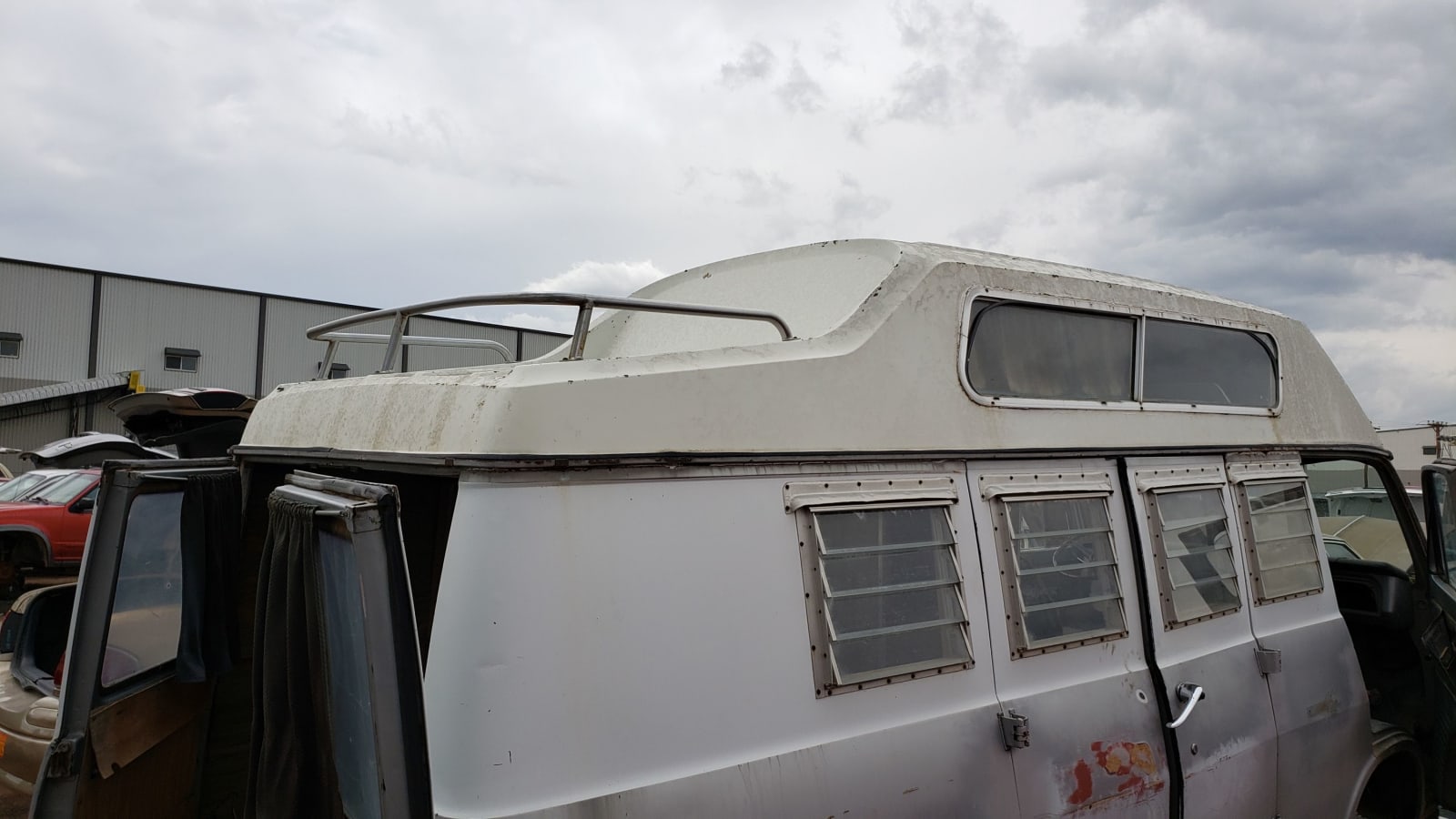During the 1960s, each of the American Big Three automakers created a forward-control, mid-engined small van design to compete with the big-selling Volkswagen Transporter. Ford led off with the Econoline in the 1961 model year, and sales went well. Chrysler fired back with the Dodge A100 for 1964 while The General moved in simultaneously with the the Chevrolet ChevyVan/Sportvan plus the GMC Handi-Van/Handi-Bus. With their small footprints and big load-carrying capacity, these vans worked well as RV conversions, and that’s what I’ve found in a northeastern Colorado self-service yard.
The Sportvan boasted windows and passenger seating and was marketed as a sort of jouncy, industrial-grade family station wagon. The cargo version got ChevyVan badging; this paralleled Dodge’s Sportsman/Tradesman van-labeling system. Buyers could choose between shorty vans with 90-inch wheelbases and the standard 108-inch size. Today’s Junkyard Gem is a ChevyVan 108.
The Ford, Dodge, and GM forward-control vans of this era shared certain characteristics, including very sturdy construction, solid front axles, and terrifying freeway manners. The driver sat atop the front axle, with right leg pressed against a broiling hot steel box containing the engine and face inches from the windshield. Drum brakes all around ensured great excitement when high-speed stops became necessary. These vans were great for precision maneuvering up to cramped loading docks and they could carry loads that would have flattened a VW bus, but long highway drives seemed more heroic experiences than most American drivers preferred. By the 1971 model year, all three manufacturers had created new van designs with engines in front of the driver and independent front suspensions.
Here’s the view of the engine doghouse from the passenger seat. Someone yanked the engine before I got here, so we will never know if this van started life with the base 140-horsepower 230ci straight-six, the 155-horsepower 250ci straight-six, or the 200-horsepower 307ci V8 (those displacements amount to 3.8, 4.1, and 5.0 liters, respectively).
We can see, by looking at the shift indicator, that this ChevyVan had the optional Turbo Hydra-Matic three-speed automatic transmission. Cheapskates got the standard three-on-the-tree manual, while a four-on-the-tree could be had as an option (sadly, no Detroit vans ever came with five-on-the-tree manual transmissions).
The interior must have been nice before the harsh Colorado climate took its toll on the wood and cloth.
Back in the early 1970s, this rig would have been the envy of everyone at the campsite.
It appears to have spent many decades here in Colorado.
Look, even an observation deck!
Related Video:


